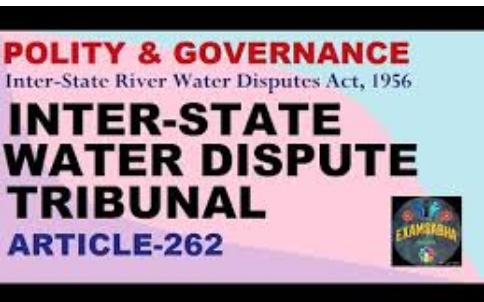Krishna waters – 5
The Inter-State River Water Disputes Act, 1956 provided for the adjudication of disputes relating to waters of interstate rivers and river vallies. This led to increased litigation. What was highly litigated was ‘what is water dispute’. It mainly excluded the Supreme Court from hearing the water disputes. But SC will decide whether it is water dispute or not. The Union has to constitute a tribunal when a dispute occurred and then the state makes a request. Formation of tribunal itself is a big process and it took decades for constituting tribunals. The River Boards Act 1956 is enacted essentially to give Union the control of rivers to regulate, develop in the public interest. It remained a dead letter as no river basin was formed as mandated. It would have affected the federal rights of states. But as Act was inoperative, its declaration of aims also remained ineffective.
Breach of federal norms
But the governance of the interstate rivers became complicated because of breach of federal norms and perpetuating ambiguity in dispute resolution.
Viewing at the nature of long rivers spreading over four or five states, a conciliatory role of the Union is inevitable. It is the duty of the Centre to secure integrated ecosystem and rivers, while states should be willing to resolve through the negotiation and exchange of benefits. Envisaging a positive role to Centre is reasonable and practical. The factor of larger public interest factor national economy gives more powers to the Union. Thus, the Constitution says as long as Union deems fit, states can utilise the water. Indiscriminate utilisation by the state, of course can warrant the disputes and intervention by the Centre. Question is whether the Centre has power to prohibit the state from using the water?
Contentious, emotional disputes
Instead of performing its role as an elderly gentleman, the Union is exercising its superior power in an indiscriminate and unregulated use of interstate river water. The Sarkaria Commission opined that the Parliament must clearly state the extent to which its involvement is justified. States List brings interstate rivers within the scope of states, creating another source of ambiguity. It appears here that union’s power is limited. Inter-state River Water Dispute Act 1956 is amended several times, where as the River Boards Act, 1956 is neither touched nor implemented. We have two types of interstate river water disputes- sub-national, like Kaveri dispute between Tamil Nadu and Karnataka and international between upper stream countries like China and India. Inter-state river water dispute Act envisages an expert panel heading a tribunal to give an award. But Section 5(3) of the Act provides the power to the States to question the award in Supreme Court. It is not a defective or unnecessary provision. An aggrieved state should have a review mechanism. Tribunal is also an adjudicatory body like court, which may not provide enough scope for conciliation and direct negotiation. To cut the delays the 2002 amendment to the ISWD Act limited the adjudication by tribunal to one year by the court and for the tribunals three-year time was given to resolve. It can be extended by two years. But it is not practical to adhere to these time limits for highly contentious and emotional disputes.




